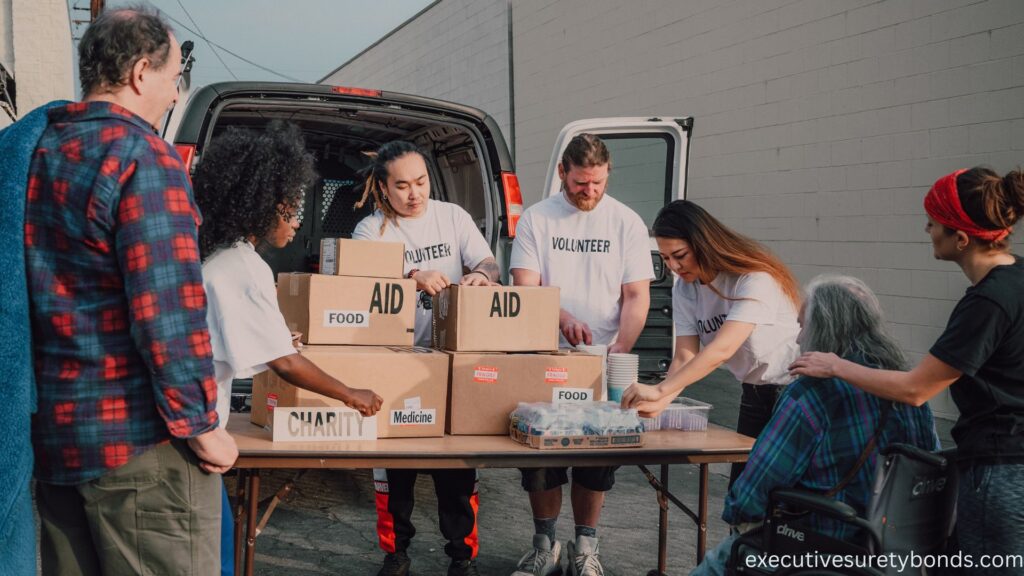Introduction
In the world of philanthropy and charitable giving, commercial fundraisers play a vital role in connecting generous donors with causes they care about. However, trust is paramount in this industry, and to ensure that donations reach their intended destinations, Washington State has put in place regulations, including the Commercial Fundraiser $25,000 Bond. In this article, we’ll explore the purpose and significance of this bond, making it accessible to fundraisers, donors, and anyone interested in the ethical aspects of fundraising.
The Purpose of the Bond
Let’s begin by unraveling the purpose of the Washington State Commercial Fundraiser $25,000 Bond. Commercial fundraisers are entities that raise funds on behalf of charities, nonprofit organizations, or other causes. They bridge the gap between donors and beneficiaries, collecting and managing donations with the promise that they will be used for their intended charitable purposes. To safeguard the interests of donors, maintain transparency in fundraising operations, and uphold the integrity of the fundraising industry, the state mandates that commercial fundraisers obtain this bond.
The bond serves as a financial guarantee, assuring donors and regulatory authorities that the commercial fundraiser will conduct its operations ethically and in compliance with state regulations. It acts as a safety net, providing recourse in case the commercial fundraiser fails to fulfill its obligations, misappropriates funds, or engages in deceptive practices.
The Cost of the Bond
Now, let’s clarify the cost of the Washington State Commercial Fundraiser $25,000 Bond. The bond amount represents the maximum coverage provided by the bond, but it doesn’t necessarily reflect the upfront payment made by the commercial fundraiser. The actual cost that a fundraiser incurs for this bond can vary based on several factors.
The bond cost is influenced by the commercial fundraiser’s financial stability, track record, and the scale of their fundraising operations. Fundraisers with a strong history of ethical fundraising practices often pay lower premiums, which are a fraction of the bond amount. Conversely, those with a less favorable track record or those handling larger fundraising campaigns may pay higher premiums. This variable pricing ensures that the bond aligns with each fundraiser’s unique circumstances.
How the Bond Works
Let’s delve into how the Washington State Commercial Fundraiser $25,000 Bond operates in practice. When a commercial fundraiser obtains this bond, they enter into a legal agreement with a bonding company. The bonding company essentially vouches for the fundraiser’s commitment to ethical fundraising practices and compliance with state regulations.
If, for any reason, the commercial fundraiser fails to meet its obligations, misuses funds, or engages in deceptive practices, a claim can be made against the bond. The bonding company then investigates the claim and, if it’s found to be valid, provides compensation, up to the bond’s maximum amount, to cover potential losses incurred by donors or the state.
Conclusion
In conclusion, the Washington State Commercial Fundraiser $25,000 Bond is a cornerstone in ensuring the ethical and responsible operation of commercial fundraisers in the state’s philanthropic landscape. It offers peace of mind to donors, regulatory authorities, and the nonprofit sector that these fundraisers will uphold the highest standards of trustworthiness, transparency, and compliance with regulations.
Whether you’re a generous donor supporting a cause, a nonprofit organization partnering with a fundraiser, or simply curious about the ethical aspects of fundraising, understanding the significance of compliance and the purpose of bonds is essential. This knowledge not only fosters trust in charitable giving but also ensures that fundraising in Washington State is conducted with integrity and accountability, where philanthropy meets ethics.
Frequently Asked Questions
Can a commercial fundraiser use the bond to assure donors that their contributions will be directed toward specific charitable projects or causes, rather than just general fundraising efforts?
This is an uncommon but pertinent question for commercial fundraisers seeking to build trust with donors. While the bond primarily serves as a financial guarantee of ethical fundraising practices, some fundraisers may consider using it as a tool to assure donors that their contributions will be directed toward specific charitable projects or causes. While the bond doesn’t dictate the allocation of funds, some fundraisers may explore ways to provide additional transparency regarding fund utilization to foster stronger donor relationships.
Are there any specific bonding considerations or requirements for commercial fundraisers who specialize in online crowdfunding or peer-to-peer fundraising, compared to those who employ more traditional fundraising methods?
This is an uncommon but relevant concern for fundraisers in the digital age. While the basic bonding requirements remain consistent, commercial fundraisers leveraging online crowdfunding platforms or peer-to-peer fundraising methods may face unique regulatory considerations. They should consult with regulatory authorities to ensure they meet any additional bonding or licensing requirements related to their digital fundraising practices.
Can a commercial fundraiser work with a single bond to cover multiple fundraising campaigns for different charitable organizations, or is a separate bond required for each campaign?
This is an uncommon but practical question for fundraisers managing multiple fundraising campaigns. In some cases, a commercial fundraiser may be able to use a single bond to cover multiple campaigns, as long as they are conducted in compliance with state regulations. However, it’s essential to consult with regulatory authorities to ensure that the bond adequately covers the scope and scale of each campaign and meets all legal requirements.

